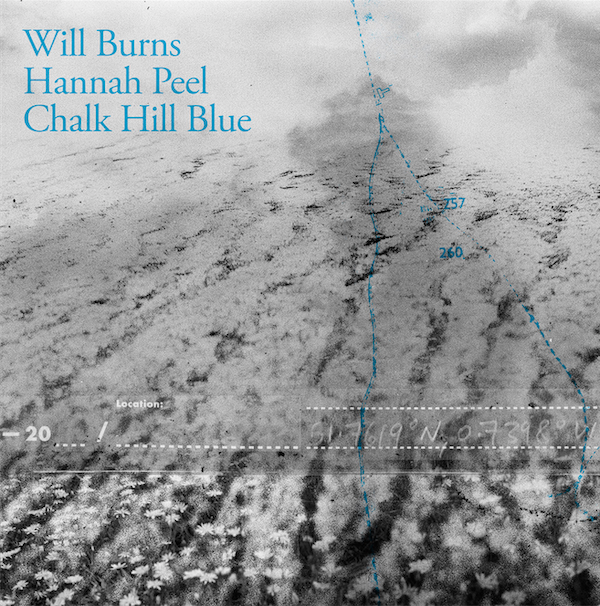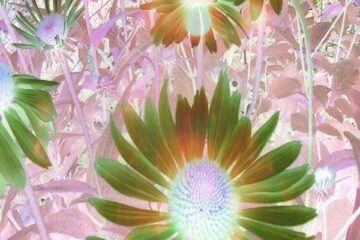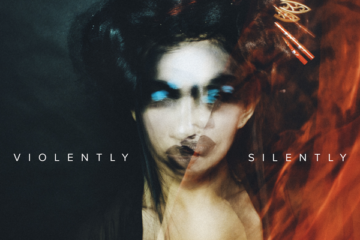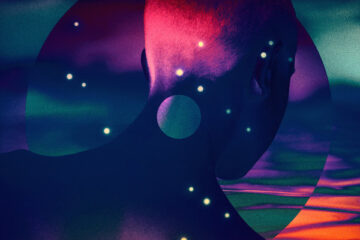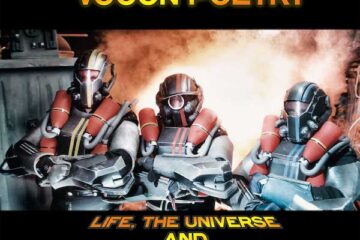Here are the fragments…
As a musician, Hannah Peel has always been keen to expand her musical boundaries and explore ever-more esoteric outings. Take her 2010 EP Rebox for instance which featured music box covers of classic synth-pop tunes, including ‘Tainted Love’, ‘Blue Monday’ and OMD’s ‘Electricity’.
Her 2017 album Mary Casio: Journey To Cassiopeia (see The Electricity Club’s review previously) played around with the unlikely combo of analogue synths and a brass band for a concept album. Outside of her own work, Peel has also worked with a wide variety of people from John Foxx to Paul Weller.
Chalk Hill Blue sees Peel collaborating with writer and poet Will Burns for an album that they describe as “electronic ruralism”. Combining spoken word pieces with electronic tonal pieces, the album explores the chalk landscapes of Southern England.
Burns is also poet-in-residence for Caught by the River, a collective that brings together disparate voices and musicians to tell stories with a loose theme of landscapes and rivers to guide them. On that basis, Chalk Hill Blue serves as a perfect merging of talents to offer reflective moods and odd connections to the English landscape.
Chalk Hill Blue is a curious album whose narrative thrust circles around poetry that has a distinctly personal touch care of Will Burns. His deadpan voice brings forth stories that revolve around themes of loss, death, drink, friendship and how time affects these things – as well as how it affects the landscape.
‘Out Of Doors’, which opens the album, has a musical foundation of mournful piano and sombre synth tones. The words have a flatness to them, but also carry a weight of sadness in their telling of a slipping into dementia. The poem’s reference to tape recordings designed to retrieve memories captures a peculiar sadness: “He cannot grasp what it is I’ve played him/How the report of birdsong swirls into the spaces left between us.”
In that respect, there is a reflection here of Hannah Peel’s 2017 album Awake But Always Dreaming. Similarly, that album was a response of sorts to the tragedy of Peel’s grandmother, also afflicted with that grim gradual loss of identity.
‘The Night Life’, meanwhile, has a strange twilight feel to it. A repeating rhythm of analogue sounds which serves as a backdrop in an exploration of a relationship. Phrases such as “zero hour drinking sessions” and “beyond the bounds of credit” have a certain resonance that’s a little disconcerting. That sense of unease is carried over in the music, with its relentless tattoo of electronic rhythms and sweeping synths.
‘Afterwards’ offers charming synth arpeggios against a familiar story of the passage of time and the inevitable loss of parents. Elsewhere, the album’s title track is a charming slice of Kraftwerkian electronica (it’s also the only purely instrumental composition on the album).
BUY NOW
‘Spring Dawn On Mad Mile’ has hints of Virginia Astley in its pastoral tones (someone who is very familiar with capturing the mood of landscapes as her album From Gardens Where We Feel Secure demonstrate).
There’s hints of Tangerine Dream on ‘Change’ with its pulsing rhythms and shifting soundscapes. It’s a mesmerising composition which is also the longest on the album. Burns explores the experience of seasonal changes on the landscape, his words often taking on intriguing structures (“I move, a violence all my own shape”).
Meanwhile, ‘May 9th’ has a starker narrative which explores themes of friendship and drinking (“Pale ale for me/Pale and unshaven”). Peel’s music has a minimal aspect that appears to be deliberately crafting a sense of unease – something reflected in the thoughts of the poem: “There is a common good here after last night/Though it has been too hard won.”
‘Summer Blues’ has hints of Erik Satie, utilising a melancholic piano. In turn, the words have a soberness that cover a bizarre number of topics including frying eggs and YouTube. But there’s something captivating about lines such as “Guitar strings that might rust to blue or ring forever.”
Where Chalk Hill Blue falls on the broad spectrum of electronic music (as well as the world of spoken word pieces) is difficult to assess. It’s perhaps better to accept that there are some albums that often defy neat categorisations (as Peel’s Mary Casio album deftly illustrated). Much of the material on Chalk Hill Blue invites a different approach for the listener. It’s one in which more attention needs to be focused on the rhythm of the words – as well as the themes of the words themselves.
In the sleeve notes for the album, Will Burns talks about the rural landscape, particularly the passage of time and how it changes that landscape. There’s a hint in there that we should perhaps pay more attention to the things that get eroded by time. “We don’t need these things for nostalgia” he muses, “or for some sentimental reverie, we need them for the depth of life they summon…”
Chalk Hill Blue is out now on the Rivertones label.
Will Burns and Hannah Peel are performing Chalk Hill Blue tonight 4th April at Cecil Sharp House. Details: https://www.cecilsharphouse.org/news/22-csh-site/csh-events/5899-hannah-peel-will-burns.
More forthcoming dates: https://www.caughtbytheriver.net/2019/01/will-burns-hannah-peel-chalk-hill-blue/


